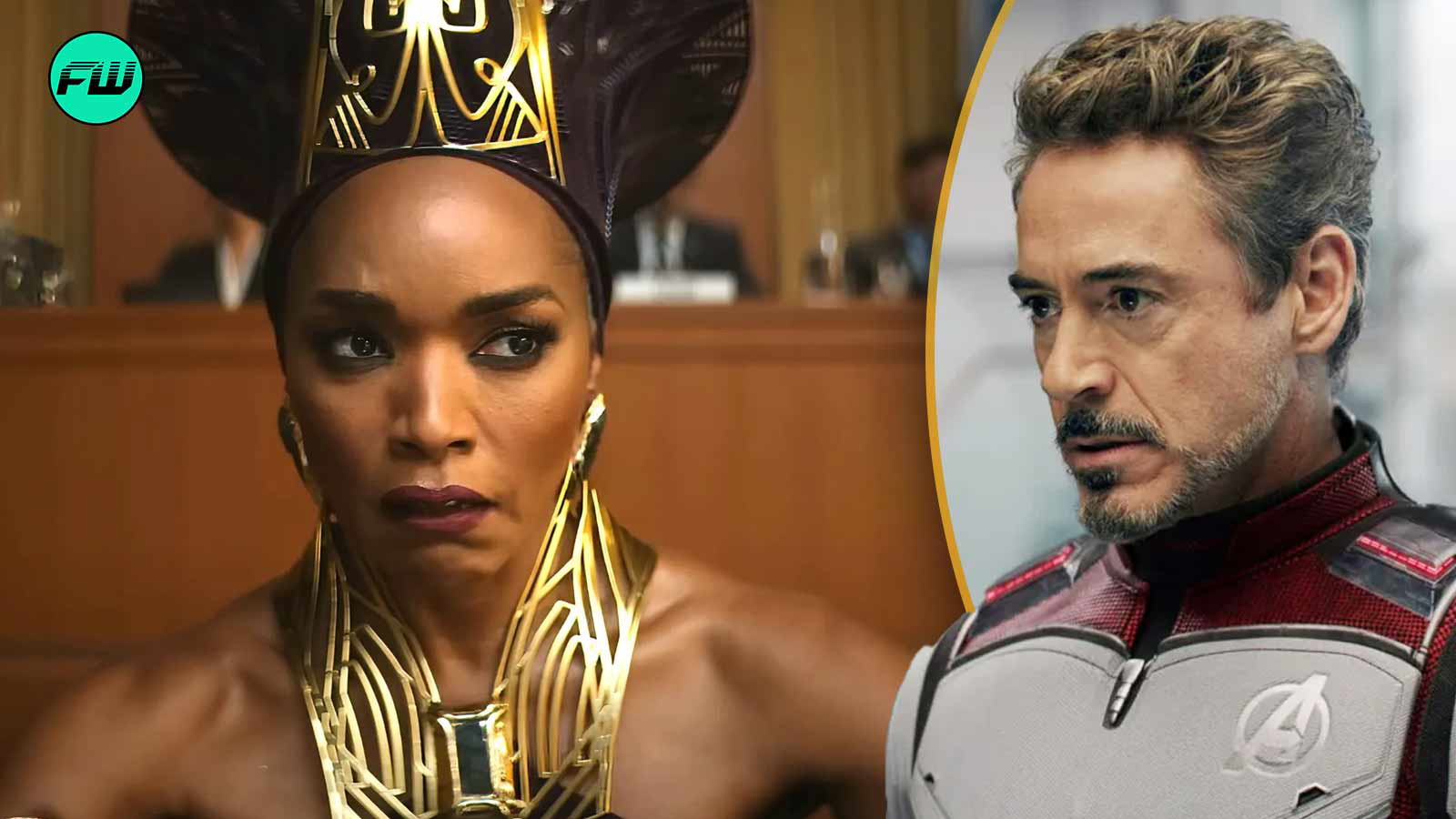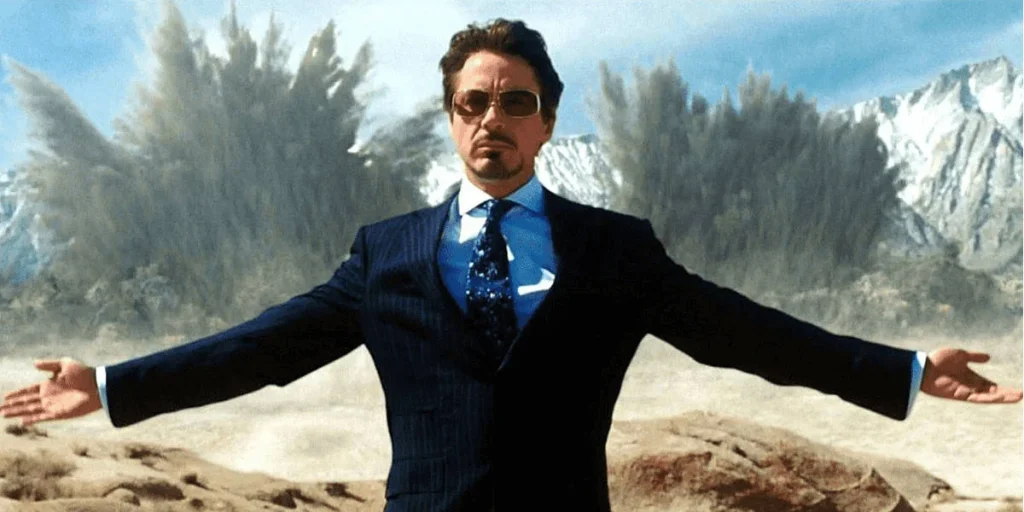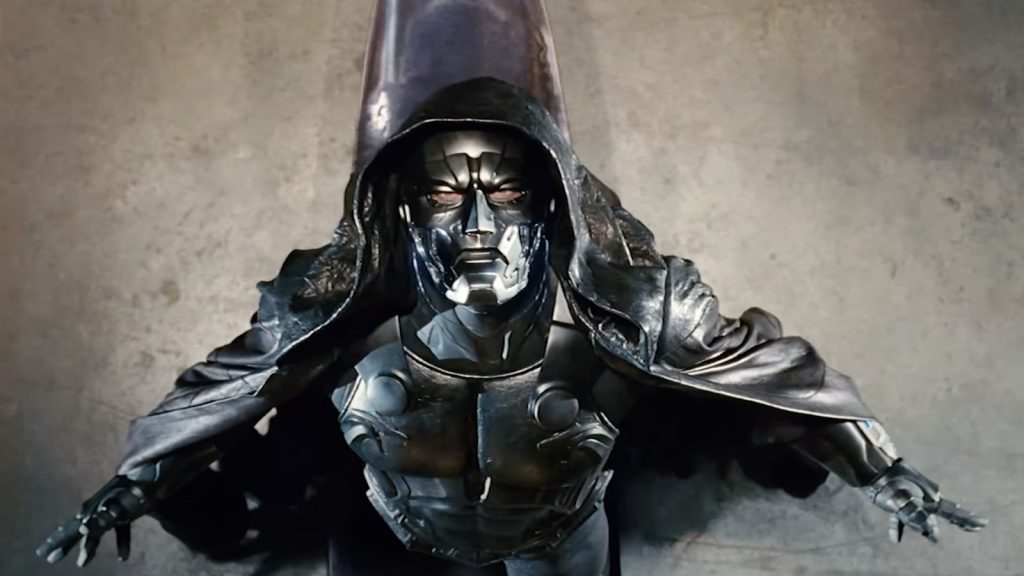The Marvel Cinematic Universe (MCU) has been the cornerstone of modern blockbuster cinema, captivating audiences worldwide with its sprawling narratives and iconic characters. Among the pantheon of Marvel heroes, Robert Downey Jr.’s Tony Stark, a.k.a. Iron Man, stands as a monumental figure, the character that laid the foundation for the entire MCU back in 2008. Downey Jr.’s portrayal of the billionaire genius turned superhero became a cultural phenomenon, cementing his place as one of Hollywood’s most bankable stars. His departure from the role following Tony Stark’s emotional death in Avengers: Endgame left a void that many believed could never be filled.

However, earlier this year at San Diego Comic-Con, the Marvel fandom was sent into a frenzy when it was announced that Robert Downey Jr. would return to the MCU, but this time as Doctor Doom, the infamous antagonist and ruler of Latveria. The news was met with mixed reactions. Some fans were thrilled to see Downey Jr. back in the fold, while others were concerned about the impact this casting decision might have on the legacy of Tony Stark. But as the dust settled, another, even more controversial issue came to light: Downey Jr.’s rumored $100 million salary for the role.
The staggering figure has drawn significant criticism, especially when compared to the reportedly meager paycheck received by Angela Bassett for her role in Black Panther: Wakanda Forever. Bassett, a revered actress with an illustrious career, was nominated for an Oscar for her performance as Queen Ramonda, becoming the first actor to receive an Academy Award nomination for a Marvel movie. Yet, despite this historic achievement, reports suggest that she was paid only $350,000 for her work on the film. The disparity between these two salaries has sparked outrage among fans, leading to broader discussions about pay equity in Hollywood and the value placed on different performances.

Robert Downey Jr.’s $100 million payday, which could potentially balloon to $200 million with backend profits, is not entirely unprecedented in the world of blockbuster cinema. Downey Jr. famously negotiated lucrative deals for his appearances in the MCU, earning a reported $75 million for Avengers: Endgame. However, the fact that he is being paid such an astronomical sum to play a villain, in contrast to Bassett’s relatively modest salary for a role that garnered critical acclaim and award recognition, has struck a nerve with many fans and industry observers.
For some, the issue is not simply about the money itself, but what it represents. Downey Jr.’s return to the MCU comes after a period of intense speculation about whether he and Chris Evans, who played Captain America, would ever reprise their roles. While Evans made a brief cameo in Deadpool & Wolverine, Downey Jr.’s return as Doctor Doom feels like a significant shift in the MCU’s direction. It’s a bold move by Marvel Studios, one that suggests they are willing to spend big to keep their most bankable star in the fold. But the question remains: is this enormous paycheck justified, especially when compared to the salaries of other talented actors in the franchise?
Angela Bassett’s role in Black Panther: Wakanda Forever was widely praised for its emotional depth and gravitas. As Queen Ramonda, she brought a regal presence and emotional weight to the film, serving as both a guiding force for her people and a grieving mother following the death of her son, T’Challa. Bassett’s performance was a standout in the film, and her Oscar nomination was seen as a long-overdue recognition of her talent and contributions to the industry. However, the revelation of her $350,000 salary has cast a shadow over that recognition, raising questions about how much value is placed on such performances, particularly those by women of color.
The disparity in pay between Downey Jr. and Bassett is reflective of a broader issue in Hollywood, where actors’ salaries are often determined by factors such as box office draw, star power, and the perceived importance of their roles within a franchise. Downey Jr.’s status as a linchpin of the MCU undoubtedly played a role in his ability to command such a high salary. But the fact that Bassett, despite her Oscar nomination and critical acclaim, was paid a fraction of that amount highlights the persistent inequalities that exist in the industry.
Fans have not been shy about expressing their displeasure with this situation. Many have taken to social media to voice their concerns, arguing that Bassett’s contribution to the MCU should be valued more highly, both in terms of recognition and financial compensation. Some have pointed out that the MCU, which has made billions of dollars at the box office, can certainly afford to pay its actors more equitably. Others have questioned whether the focus on star power and box office potential is overshadowing the importance of quality performances and the contributions of talented actors who may not have the same level of name recognition as someone like Downey Jr.

The controversy surrounding Downey Jr.’s salary also raises questions about the direction of the MCU moving forward. With the franchise now entering its fifth phase, there is a growing concern that Marvel Studios may be relying too heavily on familiar faces and established stars to carry the weight of their films. The casting of Downey Jr. as Doctor Doom is a prime example of this, as it suggests that Marvel is banking on his star power to drive interest in the character and the upcoming films. However, this approach could also backfire if fans feel that the emphasis on big-name actors is detracting from the development of new and diverse characters.
Moreover, the fact that Downey Jr. reportedly insisted on having Joe and Anthony Russo, the directors of Avengers: Endgame, brought on board to helm the upcoming Avengers: Doomsday and Secret Wars films adds another layer to the discussion. The Russo brothers, who have directed some of the most successful films in the MCU, are reportedly being paid $80 million for their work on these projects. While their involvement is likely to ensure the films are box office hits, it also raises concerns about whether Marvel is becoming too reliant on a select group of filmmakers and actors, potentially stifling the creativity and innovation that has been a hallmark of the franchise.

The comparison between Downey Jr.’s and Bassett’s salaries also brings to light the ongoing issue of pay equity in Hollywood, particularly for women and people of color. Despite progress in recent years, significant disparities still exist, with women and minority actors often being paid less than their white male counterparts. This issue is not limited to the MCU, but the visibility and success of the franchise make it a particularly glaring example of how these inequalities persist in the industry.
As the debate over Downey Jr.’s salary continues, it is important to consider the broader implications of this controversy. The MCU has always been about more than just superheroes and action-packed battles; it is a cultural phenomenon that has shaped the way we think about storytelling, representation, and the power of cinema. The choices that Marvel Studios makes, both in terms of casting and compensation, reflect the values and priorities of the franchise. If the goal is to create a diverse and inclusive universe that celebrates a wide range of voices and experiences, then it is crucial that all actors, regardless of their background or level of fame, are compensated fairly for their contributions.
In conclusion, the news of Robert Downey Jr.’s $100 million paycheck to play Doctor Doom has sparked a significant controversy that goes beyond the confines of the MCU. While his return to the franchise is undoubtedly a major event, the disparity in pay between him and Angela Bassett, who delivered an Oscar-nominated performance for a fraction of his salary, has highlighted ongoing issues of pay equity and representation in Hollywood. As fans and industry observers continue to debate the fairness of this situation, it is clear that the MCU’s next phase will be shaped not just by the characters and stories it tells, but also by the choices it makes in how it values and compensates the talent behind those stories. The question now is whether Marvel Studios will take this opportunity to address these concerns and ensure that all its actors are given the recognition and compensation they deserve.
News
🕵🏻 Alejo Refuta a Olímpico sobre Kevyn: “Todo Hay Que Ganárselo”
En el mundo competitivo del “Desafío”, cada palabra cuenta, y cada afirmación puede desatar debates intensos entre los desafiantes. Este es el caso de las declaraciones recientes de Olímpico, quien, antes de despedirse, elogió el nivel competitivo de Kevyn y…
🌹 Darlyn y Kratos: La Historia de Amor que Nació en las Sombras del Desafío
El mundo del Desafío es un espacio lleno de competencia, esfuerzo físico, y tensiones, donde los participantes ponen a prueba no solo su fuerza, sino también su resistencia mental y emocional. Sin embargo, lo que muchas veces no se ve…
🤺 Olímpico y la Derrota en el Box Negro: El Dolor de un Guerrero y la Reflexión del Equipo Pibe
La reciente derrota de Olímpico en el Box Negro ha dejado a muchos sorprendidos y a otros con el corazón roto. Las palabras de Guajira, una de las integrantes más cercanas a él, dan cuenta del dolor y la frustración…
💔 ¡Gran Giro en Desafío The Box 2024: El Equipo Rojo se Desmorona tras la Salida de Karen y Olímpico!
El capítulo 102 del Desafío The Box 2024 nos trajo uno de los momentos más impactantes de la temporada. El Equipo Rojo, en un movimiento que muchos considerarían un error estratégico, envió a Karen y Olímpico al “box de la…
🏃♂️ 💨Desafío The Box 2024: La Impactante Salida de Karen y Olímpico que Nadie Esperaba
El capítulo 102 de Desafío The Box 2024 ha dejado a miles de televidentes atónitos y conmocionados. La eliminación de Karen y Olímpico, una de las duplas favoritas para llegar a la gran final, ha generado un profundo malestar en…
😱 Eliminación Sorprendente y Revelaciones Impactantes en el Capítulo 102 de ‘Desafío The Box 2024’: Karen y Olímpico Dicen Adiós
En el episodio más reciente de “Desafío The Box 2024”, los espectadores fueron testigos de una eliminación inesperada que dejó a todos al borde de sus asientos. El capítulo 102 del famoso reality colombiano, que se emitió el pasado miércoles…
End of content
No more pages to load











